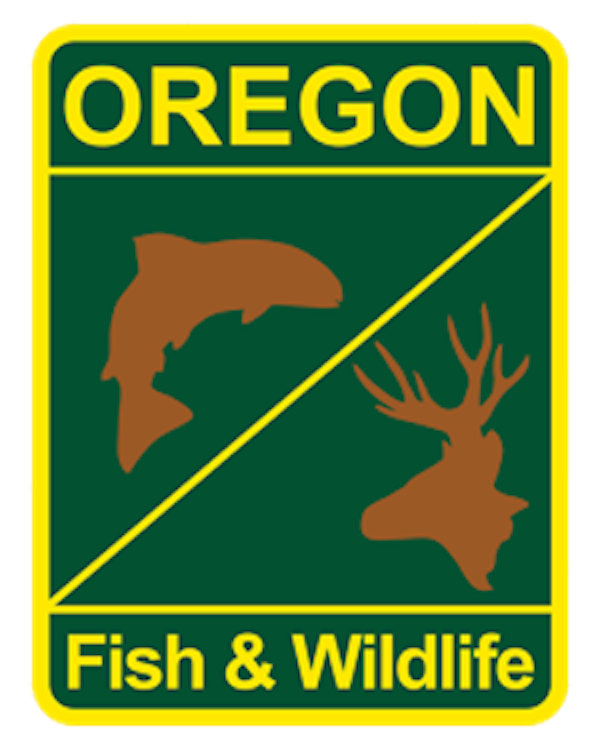Emergency fishing regulations in response to drought begin July 1: Check the Recreation Report in your zone for info
by OR Department of Fish & Wildlife Staff
7-1-2021
Website
CORRECTION: The original release inaccurately described the Nehalem River angling closure; see corrected description in red text below. The closure is only upstream of the Miami-Foley Road Bridge.
June 30, 2021
SALEM, Ore.—ODFW is implementing emergency regulations that will begin July 1 in several angling zones as Oregon faces a severe drought this summer, putting the state’s salmon, steelhead, trout and sturgeon at risk.
As always, the latest regulations are listed at the top of the Recreation Report – Fishing Report for each zone. Always check your angling zone before you go fishing.
These emergency regulations are in effect until Sept. 30, 2021 but may be lifted early or extended depending on conditions.
A summary of emergency regulations follows.
- Fishing will close for salmon, steelhead, sturgeon, and trout from 2 p.m. until one hour before sunrise in some rivers and streams in the NW, SW, Willamette, Central, NE zones. (“Hoot owl” regulations to end fishing before water temperatures are at their warmest, which stresses fish.)
- Nehalem River (NW Zone) upstream of the Miami-Foley Road Bridge (and tributaries upstream of bridge) will close to all angling July 1-Sept. 30. The Nehalem Bay/River from the mouth to the Miami Foley Road Bridge remains open under permanent regulations. The North Fork Nehalem is also open with “hoot owl” restrictions above tidewater. All other open streams in the NW Zone will be under “hoot owl” regulations.
- The Deschutes River from the mouth to Sherars Falls will be under “hoot owl” regulations to protect fish.
- Angling closure within 200 feet of mouths of tributaries in portions of the Umpqua and North Umpqua Rivers, to allow fish to gather in these cooler areas without angling pressure.
- Other targeted angling closures in portions of the Rogue and Illinois Rivers to allow for salmon and steelhead facing tough conditions to migrate without angling pressure.
- Hyatt and Howard Prairie Reservoirs in SW Zone are lifting all bag limits on all species due to extremely low water conditions that are becoming unsuitable for fish.
For full details, see the emergency regulations for your angling zone at https://myodfw.com/recreation-report/fishing-report/
“There is a tough summer and early fall ahead for fish, and we want to take steps to help them survive,” said Shaun Clements, ODFW deputy administrator for inland fisheries. “We appreciate anglers following the regulations and being flexible with their plans to help fish this year.”
This doesn’t mean that all fishing has to stop,” continued Clements. “Except for the Nehalem River, fishing will remain open the morning and early afternoon hours when water temperatures are cooler for fish and people. There are many great fishing opportunities in high lakes, for warmwater fish like, bass, walleye, or crappie, and in lakes and reservoirs stocked with hatchery rainbow trout—though stocking plans may change due to the drought so remember to check the Recreation Report not the online schedule for the latest information.”
Anglers are reminded to use best practices when fishing in areas that may require release of the fish:
- Use appropriate gear and land fish quickly. The longer the fight, the less likely the fish will survive.
- Avoid removing the fish from the water.
- If taking a photo, cradle the fish at water level and quickly take the picture.
- Remove hooks quickly and gently while keeping the fish under water.
- Use long-nosed pliers or hemostats to back out a hook.
- If a fish is hooked deeply, cut the line near the hook.
- Revive fish (point them into slow current or move them back and forth until gills are working).
- When possible, let the fish swim out of your hands.
More Reports
OR Department of Fish & Wildlife Reports
for Thursday, July 1st, 2021• ODFW Recreation Report

6-24-2021
Fishing tips for beating the heat Get up early. Fish early in the morning when water temperatures are cooler and fish are...... Read More
